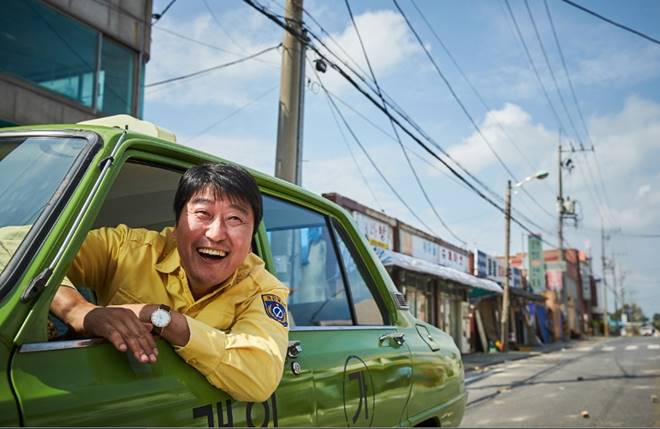
South Korea's No. 1 best selling movie this year has been invited to open five film festivals in Europe. "A Taxi Driver," starring Song Kang-ho and German actor Thomas Kretschmann, will be screened in Korean film festivals in Belgium, Spain, Germany, France and Hungary, Yonhap News reported.
Its director, Jang Hoon, will grace the film festivals in Frankfurt on October 17 and Paris on October 24.
"Since the story of citizens fighting against injustice and fighting for justice is a universal theme, overseas viewers will also be able to feel a lot of empathy. We are actively discussing invitations with a number of other film festivals," according to distributor Showbox.
"A Taxi Driver" was earlier chosen by a committee under the Korean Film Council (KOFIC) to be South Korea's official entry to the 2018 Oscars' Best Foreign Language Film category.
"'A Taxi Driver,' based on a real story, well-illustrated the characteristics of Korea as well as human rights and democratization in Asia. Also, (we) thought it would convey well the meaning of the film to many international viewers with its universal humanistic appeal," said KOFIC, according to the Korea Herald.
As of September 15, the movie has earned US$84.13 million at the Korean box office with 12.12 million in total admissions. It is the first movie this year in Korea to sell 10 million tickets.
Last July, "A Taxi Driver" was shown at the 21st Fantasia International Film Festival in Montreal, Canada where Song Kang Ho won best actor under the Cheval Noir Award.
The movie is largely about the 1980 pro-democracy uprising in Gwangju, South Korea where hundreds were killed. The story focuses on taxi driver Kim Man-seob (Song Kang Ho) who takes German TV journalist Peter (Kretschmann) from Seoul to Gwangju to cover the uprising.
It was based on the true story of German journalist Jurgen Hinzpeter who covered the Gwangju uprising.
Korean President Moon Jae-in watched the film last month together with Hinzpeter's widow in Seoul.


